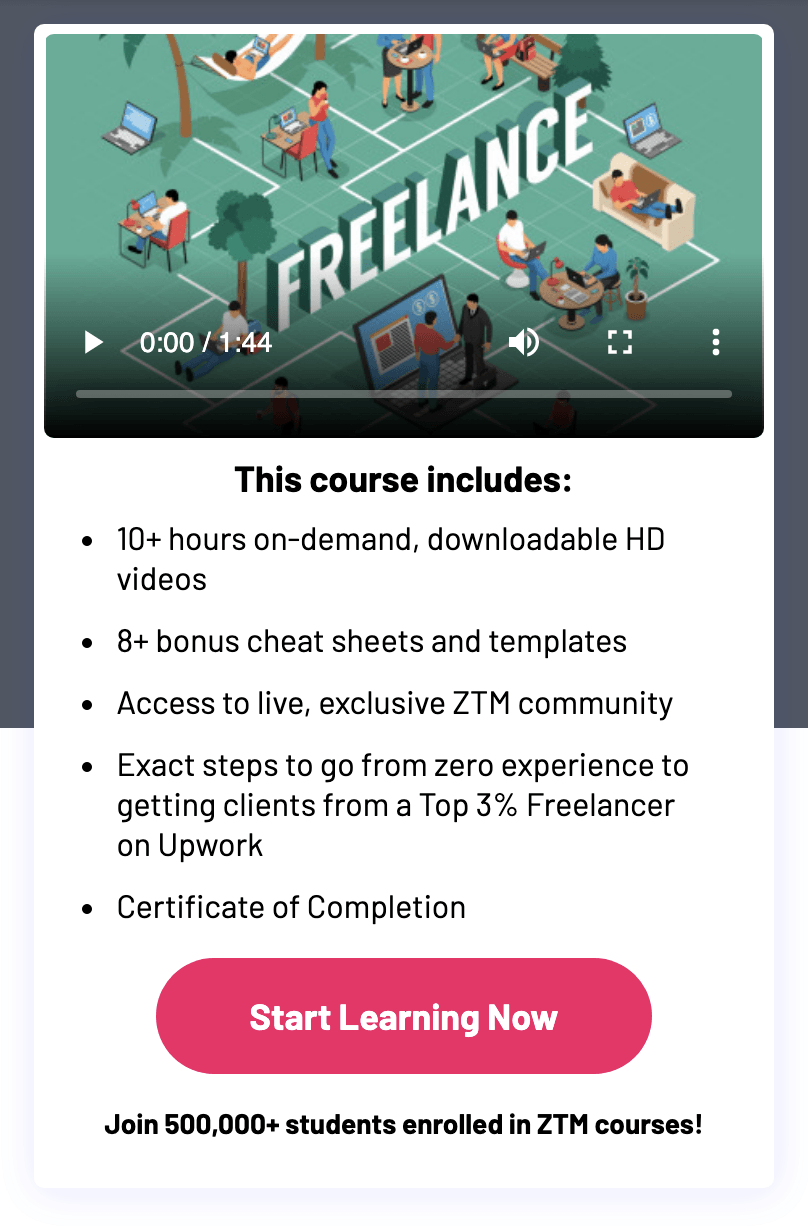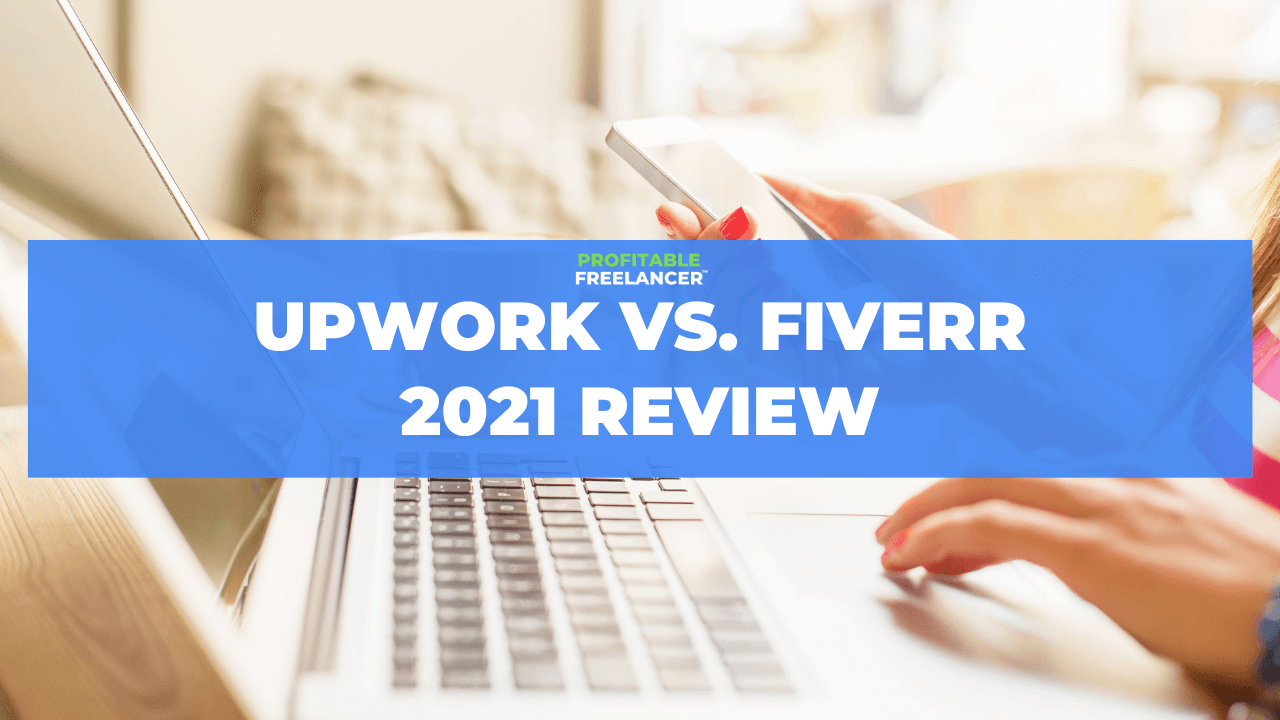Technical SEO Specialists: What are they and how do you become one?
Looking to learn the most in-demand freelance skills? You’ve come to the right place: Technical SEO specialists have a higher salary and way less competition than freelancers in other fields.
If you want to learn more about what exactly technical SEO specialists do, what you need to learn to become one, and how to land your first freelancing technical SEO job, keep reading.
What is a technical SEO specialist?
A technical SEO specialist is someone who focuses on all the ways you can optimize a website from the back-end. This includes things like creating sitemaps and reducing server response times by eliminating unnecessary page loading processes.
Fundamentally, technical SEO is about optimizing the user’s experience with a website itself.
Search engine crawlers, which are sort of like little spiders that automatically read through (almost) every page of every website online to figure out what that page is about and where it should rank in search results.
Search engine crawlers pick up data about a website and then search engines apply a search algorithm to that data, so it can determine how relevant and useful a webpage is to a user who types in a certain query.
From here on out, this post will focus on ranking in Google search results, since
about 92% of all online users search with Google.
The 11 Big Technical SEO Topics in 2022
Since Google is always changing to create the best user experience for users, their search algorithms are also always changing. That means you will be continuously learning technical SEO and evolving right along with Google.
For right now (and probably for the foreseeable future), the big technical SEO topics are:
- Crawling: Can search bots “crawl through” or “read” the pages on a website?
- Rendering: How efficiently does a browser assemble the parts of a webpage to create the end result, which is the interactive webpage that is presented to users?
- Indexation: Will Google search bots index, or store, your web pages so that a browser can quickly render them when a user clicks on them?
- Mobile: How well does a website operate on mobile devices?
- SSL: How secure is a website? Will a user’s information remain safe while on a website?
- Structured data: How well can search crawlers understand a webpage? Are there pieces of data such as star ratings or product prices that crawlers can easily pick up on and display to users?
- Migrations: Has a major website change, like changing the domain name or switching web host providers, been properly implemented? Have Google search engine bots updated your index status to reflect these changes?
- Page speed: How fast does this webpage load?
- Content optimization: How strong is this content? Are there any pages of duplicate content or “thin content”?
- Status codes: Does a website’s server properly respond to a browser’s request? For example, does a request for loading one page of a website result in a redirect to another webpage?
- Site structure: Is a website organized so that it makes sense for both search engine bots and users?
You’ll notice in all of these topics that while the focus seems to be about how Google reads and reacts to a website, Google search bots are only interested in providing the best possible browsing experience for users.
Keep your mind focused on how users can interact with a website first, then get into the nitty-gritty search optimization details.
The Benefits: Technical SEO Specialist Salary, Competition, and More
The average technical SEO specialist salary starts out at about $52,000, but can range anywhere from $50,000-$75,000.
A quick search on Upwork, the world’s largest freelance job platform, shows that freelance technical SEO specialists typically earn anywhere from $30-$75 an hour, with most jobs being long-term prospects.
There is also a lower level of competition for jobs in technical SEO when compared to other forms of SEO. This is because technical SEO takes a bit more technical knowledge and skills than things like SEO copywriting — although learning other forms of SEO along with technical SEO would make you a highly desirable “SEO unicorn.”
Related:
Learn a skill like SEO copywriting to become the SEO unicorn that everyone wants to hire.
On-Page SEO vs. Off-Page SEO vs. Technical SEO
While technical, on-page, and off-page SEO all focus on ranking higher in search results, they each have unique and distinct differences. They also require different skill sets to get just right.
On-page SEO relates to optimizing the content users see on the front-end of a website. On-page SEO specialists focus on things like keyword research, meta descriptions, and image alt-text to improve the chances of Google bots and users landing on a webpage.
Off-page SEO relates to optimizing outside of a website. Off-page SEO specialists focus on things like link building and in some cases
social media management, to pull more traffic to a website from other sources.
Front-end users will never see technical SEO efforts — but they are extremely important if a website wants to rank higher in search.
How to Become a Technical SEO Specialist
First, recognize that technical SEO is a continuous learning process. Prepare to spend a good percentage of your time reading up on the latest SEO trends from resources like Search Engine Journal.
Next, you’ll want to get a broad understanding of each aspect of technical SEO. Free resources such as the
Moz Beginner Guide to Technical SEO and
Google’s Search Engine Optimization Webmaster Starter Guide just to understand basic terms and tools used in this field.
After that, learn some basic HTML, CSS, and JavaScript, since these are the most common coding languages used to create and render websites. There are great courses on learning platforms like
Zero to Mastery that will get you up to speed on basic coding skills fast.
Note:
You do not have to be an expert coder to do technical SEO. Learning a little coding will help you understand problems related to things such as site rendering, server request errors, and optimizing for page speed.
Then, learn about the everyday tools you’ll use to optimize your clients’ websites:
Google Search Console,
PageSpeed Insights, and a site crawler like
Screaming Frog SEO Spider, among others.
Finally, put all of your theoretical knowledge into practice. Work on someone else’s website, or build your own website, then optimize all it’s backend functionalities.
How to Land Your First Freelance Technical SEO Specialist Job
1) Build a portfolio.
Take all of your practice work and compile it into a neat portfolio. The best way to do this would be to make sample technical SEO reports that show how your actions have improved various features of a website.
For example, run a PageSpeed Insights test on a website, then modify the website to address any technical issues and improve the site’s Core Web Vitals score (which is very important in the SEO field in 2021.)
If you have been working on a website for a while, you may even notice that the site’s web pages rank higher in search results thanks to your efforts.
You could work on a local business’s or an individual’s site. Or, you can start your own blog, affiliate website, or eCommerce venture to show your skills
and
make some money while you’re learning.
2) Build your freelancer profile in a freelancer job platform like Upwork, which has a low barrier to entry.
Upwork has more job postings than any other job platform in the world, and people hiring on the platform are also more flexible in terms of hours you’ll work. That means that you could make freelance technical SEO your side hustle, or turn freelancing into a full-time career.
Take an online beginner freelancer course and learn to:
- Quickly build your freelancer profile
- Create job proposals that will win contracts
- Build relationships with clients so you can build a sustainable source of income
3) Start applying for technical SEO jobs.
You’ll build your profile and start applying to jobs as you go through your beginner freelancer course, which will show you how to win freelancer job contracts with absolutely zero paid experience.
Highlight the fact that you are up-to-date in technical SEO practices, including improving Core Web Vitals scores, as those scores directly correlate to how well a web page will rank in related search results.
Non-technically inclined job posters will be impressed with the fact that you know these skills, and those who
do
understand the ins-and-outs of technical SEO will appreciate the fact that you are constantly working to improve your understanding of key concepts.
Technical SEO is not as intuitive as other freelancing fields. But that also means it pays more.
Put in the initial effort to learn how technical SEO works, and you’ll really stand out from other freelancers online. Plus, you’ll earn a lot more than you would with more “intuitive” skills like data entry, social media posting, and content writing.
Accelerate your freelancing business.
Learn the skills you need today to offer in-demand services by tomorrow.
















